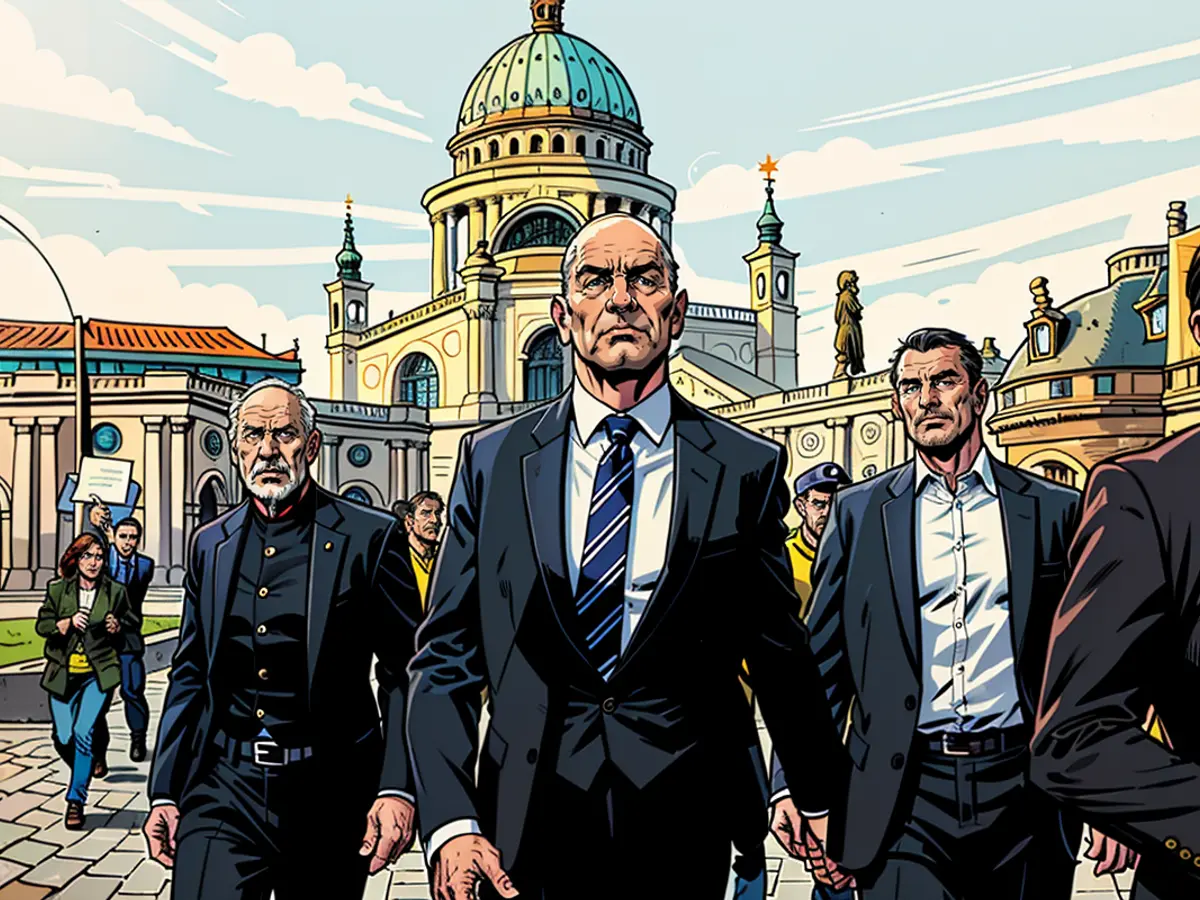Preliminary surveys indicate relief for Germany's Scholz, as his party seems poised to ward off the far-right challengers in the state elections.
The SPD, which has been in power in the state surrounding Berlin since Germany's reunification in 1990, secured 31.8% of the votes, surpassing the far-right Alternative for Germany's 29.2%, according to a last-minute poll conducted by broadcaster ZDF.
This victory may provide Scholz with a minor respite from party debates questioning his suitability to run as the SPD's chancellor candidate in the upcoming federal election in September, given his low popularity among voters.
However, it is not expected to deliver a significant boost to Scholz or his party, considering the popular incumbent SPD premier, Dietmar Woidke, distanced himself from Scholz during the campaign and criticized the federal government's policies.
Kevin Kuehnert, the SPD party general secretary, remarked, "Dietmar Woidke and his Brandenburg SPD have mounted a fierce comeback in recent weeks."
He added, "For us in the federal SPD, this evening, if things go well, our problems will not have grown any larger. But they will not have shrunk either."
75% of voters who chose the SPD did so as a defensive measure against the AfD, as per the exit poll broadcast by ARD. The turnout increased to 73% from 61% five years ago, according to ZDF.
At the national level, the SPD is polling at 15%, a significant drop from the 25.7% they secured in the 2021 federal election. They are trailing behind the AfD and the opposition conservatives.
All three parties in Scholz's ideologically diverse coalition are currently polling around 30%, making the conservatives the most popular party alone.
The coalition has faced criticism for its bickering and its management of immigration. In the formerly Communist-run East, voters are also critical of the coalition's decision to supply weapons to Ukraine to aid in its defense against Russia's full-scale invasion.
No room for complacency
The election results in Brandenburg occurred three weeks after the AfD became the first far-right party to win a state election in Germany since World War Two, in Thuringia. The AfD also performed well in neighboring Saxony, placing second after the conservatives.
Woidke warned against complacency, acknowledging the AfD's continued growth. The ZDF poll suggested the AfD had gained 5.7 percentage points since the last Brandenburg election in 2019.
AfD co-leader Tino Chrupalla highlighted the party's strong performance among young voters, a trend that mirrored far-right parties across Europe in the EU elections in June.
The leftist Alliance, led by Sahra Wagenknecht, was projected to finish third, with 12% votes, according to the poll, surpassing the conservatives with 11.6%. This underscores the ongoing political turmoil in Germany, making predictions challenging.
The Greens, one of the junior partners in the federal coalition, finished with 4.7% votes, barely missing the 5% threshold required to automatically secure a place in the state parliament.
The result of the other junior coalition partner, the Free Democrats (FDP), was not substantial enough to be reflected in the poll.
This victory in Brandenburg might momentarily deter the AfD's advance in Europe, given their success in Germany and other far-right parties' performances across the continent. However, the SPD's standing in the world arena remains weak, with their national polling numbers at 15%.








